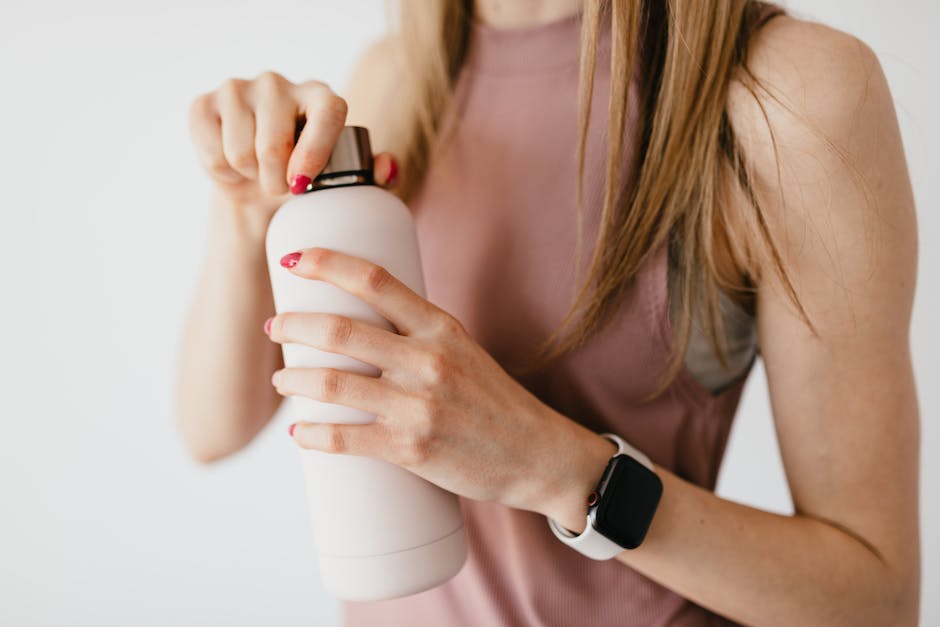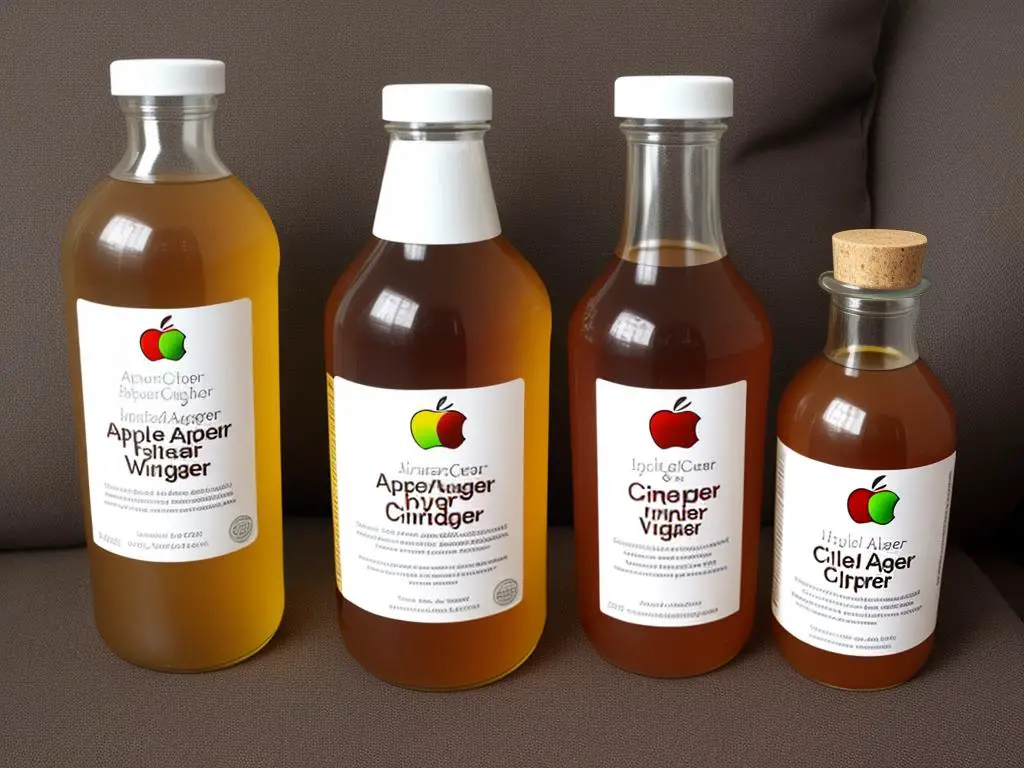Apple cider vinegar has become a popular household item due to its purported health and beauty benefits. Most notably, its use in hair care has gained widespread recognition. This essay aims to explore the benefits of apple cider vinegar for hair, which includes potentially improving scalp health, boosting hair shine, and aiding in detangling. However, as with all treatments, it’s crucial to understand the potential risks involved. We will thus delve into the potential harm and risks associated with leaving apple cider vinegar in your hair, and how its acidity might affect your hair’s pH balance. Finally, we will guide you through the proper application of apple cider vinegar to ensure you maximize its benefits and mitigate any potential risks.
Benefits of Apple Cider Vinegar for Hair
Why Apple Cider Vinegar is Beneficial for Hair
Apple cider vinegar (ACV) is a popular ingredient in many hair care routines due to its numerous beneficial properties. From its ability to balance the pH levels of the scalp to boosting hair shine, the advantages of ACV are wide-ranging and impressive.
pH Balancing Properties
One of the primary benefits of ACV for hair lies in its ability to balance the scalp’s pH levels. This prevention of either excessive acidity or alkalinity can lead to an overall healthier scalp. Highlights of a balanced scalp include less itchiness, reduction in dandruff, and the stimulation of natural oils that aid in hair growth.
Detangling and Smoothing
ACV possesses excellent detangling abilities. Its naturally acidic nature helps to tighten the hair’s cuticle layer, resulting in smoother and less tangled hair. This benefit alone makes it an appealing natural alternative to commercial detangling products, which often contain harsh chemicals.
Boosting Shine and Volume
Due to its acid content and nutrient composition, ACV can also help make dull hair shinier while enhancing its volume. It removes scalp buildup that often weighs down hair and inhibits its shine. As a result, regular use of an ACV rinse can leave your hair looking vibrant and voluminous.
Antimicrobial Properties
Apple cider vinegar’s antimicrobial properties can help reduce scalp inflammation and fend off infections. They act against the bacteria or fungi that commonly cause scalp and hair problems, like dandruff, itchiness, or hair fall.
Clarifying and Cleansing
Apple cider vinegar also acts as a powerful hair and scalp cleanser. It can strip away product buildup and excess oils without robbing the hair of its natural oils, unlike some commercial shampoos. This leaves the hair feeling clean, soft, and full of life.
To conclude, apple cider vinegar boasts a host of benefits for the hair due to its unique properties. Incorporating it into your hair care routine can enhance scalp health, boost shine and volume, and even help detangle hair.

Potential Risks and Harm
Understanding Apple Cider Vinegar and Hair
Apple cider vinegar (ACV) is a common household ingredient known for its health benefits and versatile uses, including hair care. The acidity in ACV is often championed for its ability to balance the scalp’s pH levels, remove product buildup, and boost shine. However, the acidity that may offer these benefits can also cause some potential harm or risks if left in the hair.
Potential Risks and Harm: Acidity and Hair’s pH Balance
The scalp maintains a natural pH balance between 4.5 and 5.5. This acid mantle is vital for the health of your hair and scalp as it prevents fungal and bacterial growth, seals the cuticle and supports moisture retention. When acidic products like ACV, with a pH around 3.1 to 5, are left in the hair, they can cause this pH balance to be significantly shifted. This shift often results in the hair’s cuticle being damaged and disturbed, leading to less shine and smoothness, more tangles, and increased breakage and frizz.
Side Effects: Irritation, Dryness, and Damage
Prolonged contact of ACV to your scalp can lead to irritation, especially in those with sensitive skin or preexisting skin conditions. The acid can cause a burning sensation, redness, itching, and overall discomfort. While ACV may initially seem to reduce dandruff due to its antifungal properties, the disruption of pH balance can ultimately make the situation worse.
Another potential side effect of leaving apple cider vinegar in your hair is dryness. Even though ACV is often used to remove product build-up and excess oil, excessive use or not rinsing it out appropriately can lead to the hair and scalp becoming overly dry. This dryness can make your hair more prone to breakage and split ends.
Extended use of ACV on the hair can also lead to protein loss and damage. The acidity can gradually weaken the hair strands over time, making the hair more susceptible to breakage and damage. This is particularly more likely in individuals with thin or fine hair.
Mitigating the Risks
To circumvent the potential harm and risks associated with leaving ACV in your hair, it is recommended that you always dilute it with water (typically one part ACV to two parts water) and avoid applying it directly on the scalp. Finally, rinsing the ACV out thoroughly after use and limiting its use to once a week can help reduce the potential for irritation, dryness, and damage. Always conduct a patch test before application, particularly if you have sensitive skin. In cases where discomfort or symptoms persist, professional medical advice should be sought.
Proper Application of Apple Cider Vinegar to Hair
Why Use Apple Cider Vinegar on Hair
Apple cider vinegar (ACV) can bring multiple benefits to your hair due to its acetic acid content, which helps maintain the pH balance of your hair and scalp. It promotes strength, shine, and fights against dandruff. It’s a cheaper alternative to many synthetic hair care products in the market.
What You’ll Need
To get started, you’ll need raw, unfiltered apple cider vinegar and water. You’ll also need a spray bottle or a container to mix the ingredients.
Mixing the ACV and Water
Start by mixing one part ACV with 2 parts water. This ratio can be adjusted depending on your hair type. If you have oily hair, you might want to increase the ACV; if your hair is dry or brittle, opt for less ACV and more water. Make sure to shake the container well to ensure a good mixture.
How to Apply ACV Mixture
Spray the mixture on your hair section by section, paying special attention to your roots and the scalp. If you’re dealing with dandruff, see to it that the mix is thoroughly applied to your scalp.
Duration Time
It’s suggested to leave the ACV mixture in your hair for about 1-2 minutes. This gives the vinegar enough time to restore your scalp’s pH balance and break down any dirt, grime, and oil. But don’t leave it in too long- apple cider vinegar can dry out your hair if left on for extended periods of time.
Rinsing
After waiting 1-2 minutes, thoroughly rinse your hair with warm water to ensure you’ve removed all the vinegar from your hair. If you have extra dry hair, you might want to follow up with a moisturizing conditioner to prevent any potential dryness from the vinegar.
How Often to Use ACV
To maintain optimal health, use this apple cider vinegar hair rinse once a week. This can help keep your hair’s pH balance in check and prevent build-up. If you’re using ACV to treat dandruff, you might want to apply it a little more often.
Remember to always do a patch test before using apple cider vinegar on your scalp regularly. Every individual’s skin and hair react differently to ACV. Always consult with a professional if you’re unsure about using it.

Understanding and considering the benefits, potential risks, and correct application of apple cider vinegar for hair care can empower individuals to make informed decisions about their hair health strategy. Given the benefits, including improved scalp health and increased shine, application of apple cider vinegar could be a beneficial addition to your hair care routine. However, due to possible side effects, such as scalp irritation and hair dryness, it’s essential to apply the substance cautiously. Remember, each individual’s hair is unique and may react differently to treatments, so it is important to closely monitor your hair’s condition to ensure the potential benefits outweigh any possible risks.
